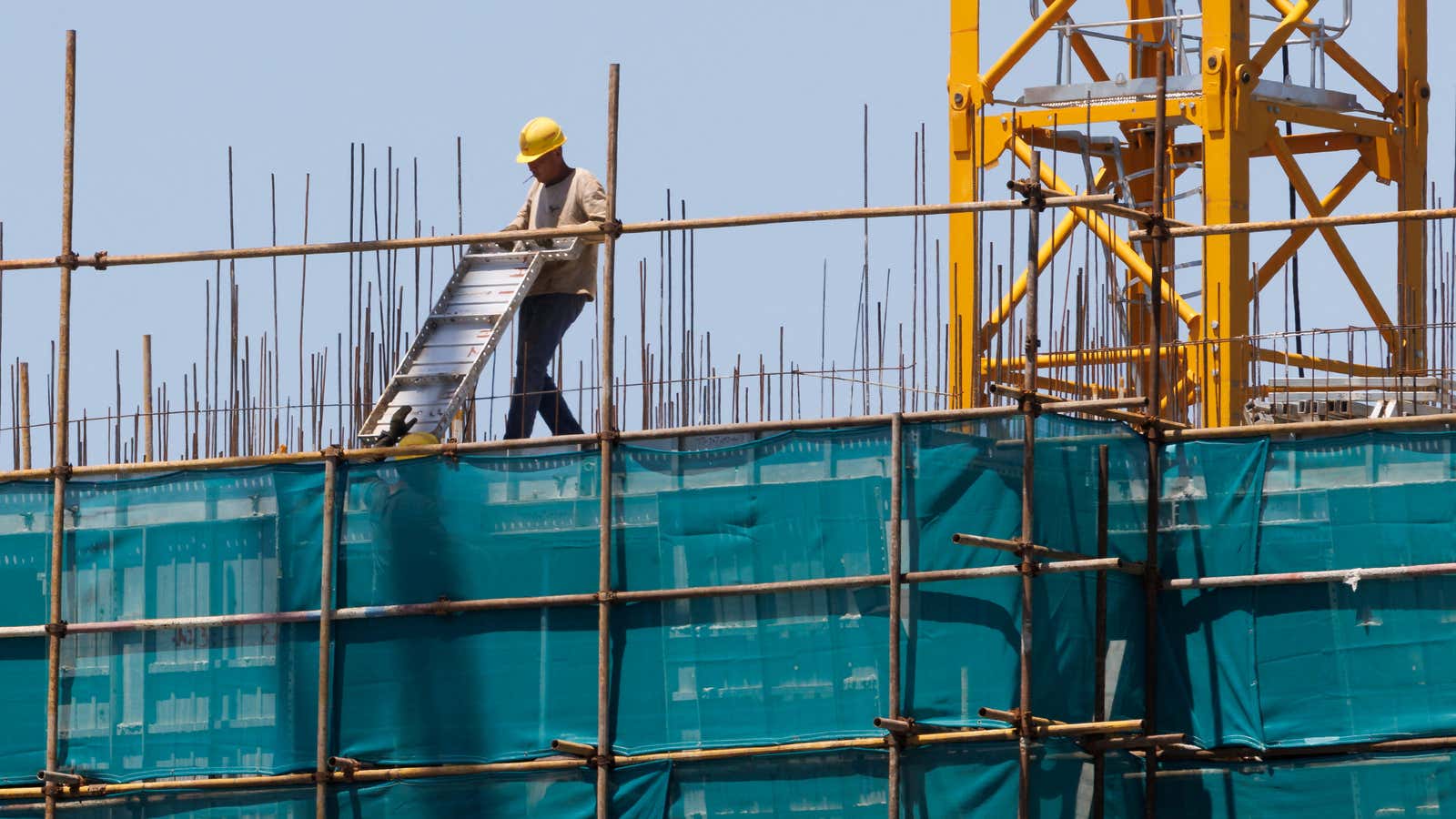The wave of mortgage boycotts across China has exposed the precarious state of the country’s real-estate sector.
Hundreds of thousands of angry homeowners have refused—at least temporarily—to make mortgage payments to protest stalled construction by property developers. That means developers’ funds have dried up, and banks risk losing some $350 million in bad loans. Government officials are desperate to stem the contagion, lest it undermine the country’s financial system.
A complex set of factors has, over the years, built up China’s real estate sector on shaky foundations. Since late last year, tremors have grown stronger and more frequent, threatening to bring the property industry’s entire house of cards crashing down.
Wang Yongli, a former deputy governor of the state-owned Bank of China, blames these troubles on a single financial mechanism at the heart of China’s property markets: “mortgages with Chinese characteristics.”
“Only a matter of time before it explodes”
Typically, mortgages are loans provided by banks to homebuyers. Homebuyers make a downpayment covering a certain portion of the property’s price. The rest is covered by a mortgage loan from a bank, which the homebuyer pays off in regular installments over a certain period, plus interest.
Not so in China. Roughly 90% of new properties in China were pre-sold last year. That means homebuyers have to fork over cash before the properties are even constructed, while property developers receive vast streams of essentially interest-free financing. What’s more, buyers in China must typically pay the full price upfront, based on designs, renderings, demonstration units, and promised delivery dates.
The practice of selling homes in advance, Wang writes, “makes developers a darling in the eyes of banks and the government, and puts all the risks on buyers.” Meanwhile, developers are incentivized to pre-sell more apartments to bring in more interest-free funds with which to further grow their businesses.
This all works fine as long as property prices don’t crash and people maintain trust in the system. Once that confidence is shaken, however, things can unravel quickly. Now, with China’s property prices falling, input costs rising, and the number of stalled projects increasing, homebuyers are reluctant to keep paying mortgages on properties they haven’t seen yet.
“This risk has existed for a long time and has accumulated in large quantities, and it is only a matter of time before it explodes,” Wang writes. “Its outbreak is only a matter of time.”
His proposed solution: Fix the “mutations” in China’s mortgages. That includes scrapping the practice of pre-selling properties at their full price and requiring property developers to bear more risk for delayed construction times.
Yet those are systemic fixes that are unlikely to materialize overnight. In the meantime, Chinese authorities are in full damage-control mode. Mortgage payment grace periods are being considered, and a central bank-backed fund to issue 1 trillion yuan ($148.2 billion) in loans to cash-strapped developers is reportedly in the works.
